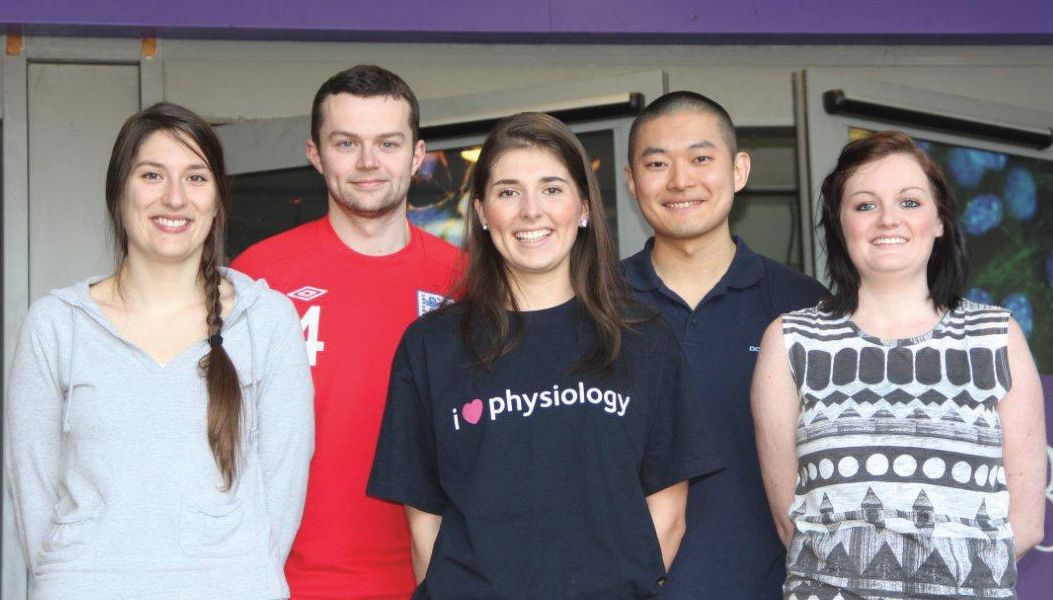
Physiology News Magazine
Physiology@Newcastle
Meeting Notes
Events
Physiology@Newcastle
Meeting Notes
Events
Megan Webster, Nichola Conlon and Git Chung
Newcastle University
8 March 2012, Newcastle, UK
Like most universities, Newcastle University has gone through several rounds of restructuring over recent years. Old departmental structures have disappeared and, with them, so has the Department of Physiological Sciences. There are many benefits to the new structure, but it does make it a little more difficult to talk ‘physiology’. With this in mind, David Thwaites organised an afternoon of oral presentations to bring together individuals from across the faculty to present their most recent findings. The afternoon was funded by a generous award from The Physiological Society, with additional funding from the School of Biomedical Sciences.
Around 130 physiologists gathered in the University Research ‘Beehive’, including undergraduates, postgraduates, postdocs and academics (and even a Dean). The first session kicked off with a series of talks by Newcastle graduates on their varied careers following graduation.
The next session highlighted the quality and diversity of physiological research at Newcastle University, with nine short presentations by current PhD students and postdocs. Research interests ranged from recurrent urinary tract infections in females (Marcelo Lanz) to the production of an in vitro model to study brain network oscillations in health and disease (Claire Gillougley). Cyril Elefteriou provided an interesting insight into biotechnology with a talk about his quest to find a suitable nanomaterial for epi-retinal implants that will hopefully allow for the correction of retinal degeneration diseases in the future. Other presentations described work from the whole animal (Karen Fisher, Neuroscience; Anne-Marie Hynes, Genetic Medicine) to the molecular (Aiqing Chen, Cellular Medicine; Noel Edwards, Cell & Molecular Biosciences) on topics from brainstem function, to vascular smooth muscle and renal disease. There were two prizes for the most popular presentations, won by Mark Turner for his lucid summary of his work on the effects of hypercapnia on CFTR-dependent HCO3- secretion in human airway epithelial cells, and Natalie Bell for her compelling insights into possible therapies for neuroblastoma by targeting of calcium signalling pathways.
The day was finished off by a presentation by Paul Sharp, a Newcastle physiology graduate now at King’s College London. The theme of his talk was the regulation of dietary iron absorption, which touched on the governing processes behind the intestinal absorption of iron, its regulation in the body, and the crucial role iron plays in a number of physiological functions.
The main objectives of Physiology@Newcastle were to provide an opportunity for physiologists of all ages to meet and chat about their work, to give young physiologists the chance to showcase their research findings, and to encourage and inspire would-be scientists into the discipline. It seemed to be a success on all counts. Nineteen undergraduates signed up as Members of The Society after the event.

